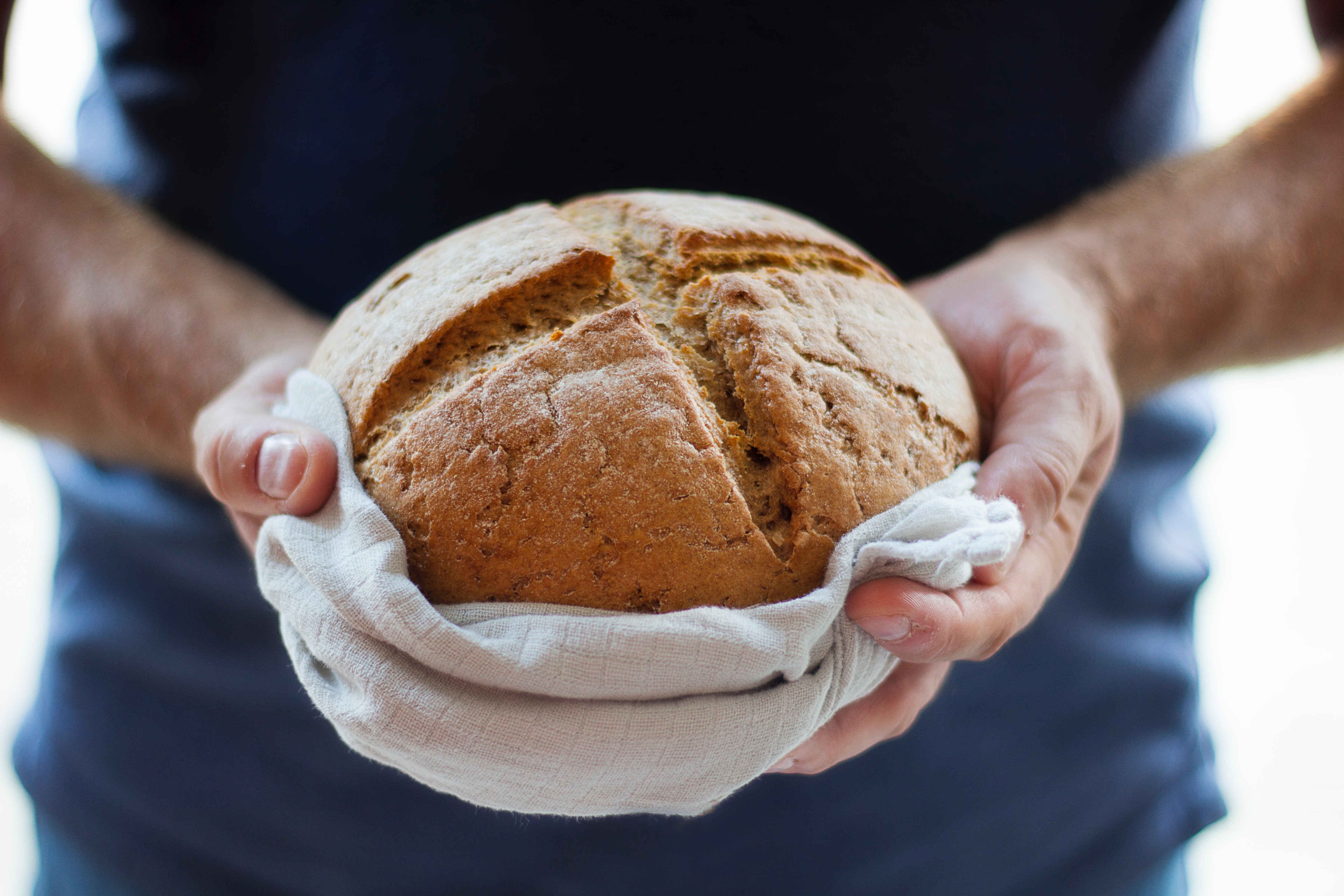
What’s the Bread For?
“What’s the bread for?”
This question from the little girl who, the day before, told me she hated going to church. We were smashed together playing in the little inflatable pool out back. She wanted me to pretend with her animals, and so I set my book aside to engage with my daughter. It’s not often I get one-on-one time with each child, so I’m learning to take advantage of these moments when they come.
In between conversations with the palace pets, we chatted about her first year at school, how she misses her teacher, and what day of the week it was. I told her the next day was Sunday, the day we go to church. That’s when she admitted her feelings about attending church.
Boring, she said. Not even the singing interested her. She just liked going to Sunday School, playing on the playground, craft time, and snacks.
So we talked about why we go to church. We’ve had this conversation before: we go to church to worship God with other people who love God–this is the simplest way to explain it right now. Then I told her we could worship God anywhere, even right there in that pool that was clearly too small for the two of us.
“We can?” she asked. Oh yes, honey. Worshipping God is acknowledging and thanking him for who he is and what he has done. We worship him with our lives: how we live, the things we say, and what we think about. We can do that anywhere, anytime.
“Like when we’re kind and don’t hit other people?” Yep, that’s also worship.
The conversation lasted about three minutes and then she moved on, as children do. But I was grateful for the opportunity to get on her level, listen to her struggles, and talk with her about the Lord. I sat there prayerful that these interactions would begin to weave a tapestry of truth upon her little heart.
So when she walked back to the pew after being prayed over during the Lord’s Supper the next day, and asked, “What’s the bread for?” to her Daddy, I leaned in close to hear what he would say. They were huddled together whispering so I couldn’t catch every word, but I can’t stop thinking about her question.
I remember the Lord’s Supper as a girl. It was always a Sunday evening devoted entirely to Communion. Beneath dimmed lights, the deacons passed shiny silver platters filled with wafers and juice down the aisles of our carpeted gym. I knew that the bread and juice represented the body and blood of Jesus, and my parents’ faithfulness to attend these services, the somber atmosphere of the congregation, and the teaching I heard each time taught me the importance of this meal.
My daughter is also growing up with an awareness of the Lord’s Supper, but for her it’s a more frequent occurrence. Week after week she hears about the bread and wine, she walks with us to the back of the church to be served this sacred meal, but she has yet to grasp its meaning.
What I love, though, is that she’s asking. She wants to understand, and the Holy Spirit is working in her heart. She’s paying attention to the bread.
Perhaps in our gluten-free, limit your carb intake society, bread has lost its significance. But in the days of Jesus, bread was a staple, found on every table, at every meal. So when Jesus looked around at the thousands of people on the mountain and asked the disciples, “Where are we to buy bread, so that these people may eat,” he was preparing for a miracle, but he would do it with something very ordinary, familiar and necessary (John 6:5).
Five loaves and two fish fed over five thousand people that day, with some leftover. Such amazement filled the hearts of all who were there, that they jumped into boats the next day to follow Jesus to the other side of the Sea. There, in the synagogue of his hometown, before a crowd who loved his miracles, Jesus gave an answer about the bread.
“Jesus said to them, ‘I am the bread of life; whoever comes to me shall not hunger, and whoever believes in me shall never thirst.” (John 6:35)
Those who had witnessed the multiplication of the bread were astonished by the bread itself: their tummies filled, their needs met. They wanted more bread.
Jesus was offering something greater, a provision better than everyday sustenance, but they missed it completely. They missed him.
Each week my daughter sees the bread, but I don’t want her to just see the bread. I want her to see Jesus.
From the manna that rained from heaven in the wilderness during the days of Moses to the bread that Jesus broke on the night of his death, the bread has always been about Jesus. A sign pointing to a better kind of provision, one that will last for all time.
To a five year old girl who finds satisfaction in slurpees from 7-11, playing dollhouse with her sisters, and snuggling with whoever is available, it’s hard to convince her that as wonderful as these things are, they will never fully satisfy. So, we encourage the questions and try to answer, we direct her to the truth of God’s Word, and we pray that the Spirit will grant her faith in him.
You would think that a lifetime of faith in Jesus would be enough to convince me that Jesus is better. But I’m still learning. There are a million moments each week when my heart misses Jesus as I wrestle with the desire for lesser things. One more follower on Instagram, a thank-you from my children for all that I do, two hours alone in a coffee shop without interruptions, a quick-fix sanctification instead of a lifelong journey in the refiner’s fire. Somehow I think that these things that I know God has the power to give me are better than life in him. Just like the crowd in Jesus’ day, I want the miracle of the bread, not Jesus himself.
Perhaps I would do well to learn from my daughter and ask, “What’s the bread for?”
Not because I need an explanation, but because I need to constantly water my faith with the truth of the gospel. Belief in Christ for salvation is a gift but it’s also a process that will last a lifetime. When I eat the bread and drink the juice each Sunday, I remember, just as Jesus taught us to do. I recognize these small morsels that signify a great gift: Jesus’ body crushed for my sin, his blood spilled out for my forgiveness. His brokenness brought about my redemption. His separation from the Father gave me access to God. His death for my life.
What’s the bread for?
To remind you of Jesus. To turn your attention toward the abundant life that is found in him. To stir your affections for something greater than this world has to offer. To increase your faith in God’s love for you. To point your soul to the only One who can satisfy your deepest cravings.
Jesus, the Bread of Life, is for you.
Photo by Kate Remmer on Unsplash

